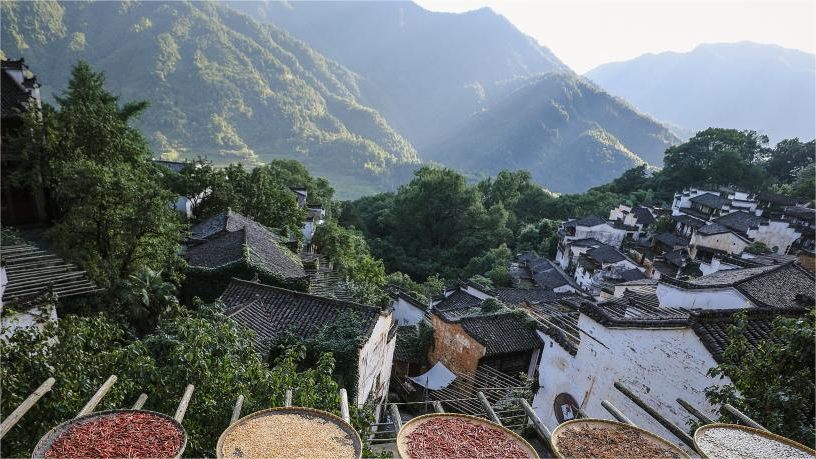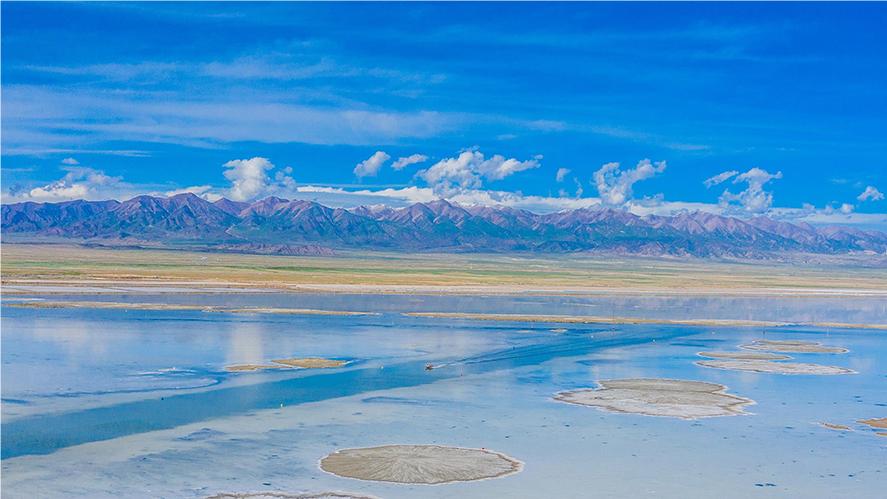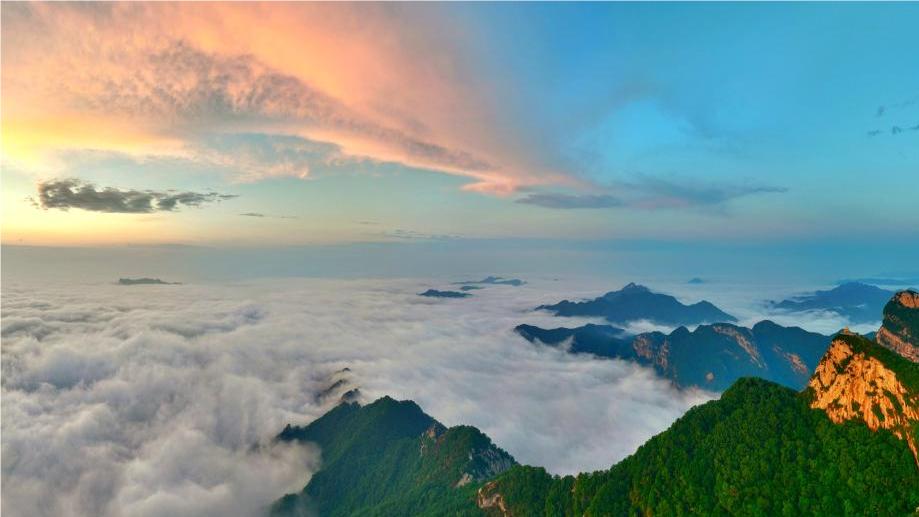Feature: Nepal's climbing guide enjoys Chinese peak and culture
URUMQI, China, July 7 (Xinhua) -- After wrapping up the Mt. Qomolangma climbing season, Nepal's guide Dawa Kami Sherpa took a brief rest at home before heading to Muztagh Ata in northwest China's Xinjiang Uygur Autonomous Region.
Nestled on the eastern edge of the Pamir Plateau, part of the Kunlun Mountains, the 7,546-meter-high Muztagh Ata is a popular peak in China due to its high altitude and relatively accessible climbing difficulty.
"I had heard about it many times before and wanted to come here five years ago, but it didn't happen then," Dawa said. "Usually, we head to Pakistan in June and July, but this year we finally got the chance to come here, and we are very excited."
The Sherpa people, renowned worldwide for their innate climbing skills, demonstrate exceptional talent in harsh high-altitude environments. Dawa is no exception. Along with his companions Lakpa Tamang and Jangbu Sherpa, each has summited Mt. Qomolangma multiple times.
"On Mt. Qomolangma, for example, the Khumbu Icefall changes every month and is dangerous, so we have to scout and fix the route," Dawa explained. "Here, the difficulty and danger are not as high. It's more about equipment checks, oxygen, and ensuring safety."
Dawa can speak some Chinese, as many of his clients on Mt. Qomolangma are from China. In the recent climbing season, 20 out of his 27-member group were Chinese.
"To communicate better with everyone, I had to learn," he said. "If I understand Chinese, it means I have more skills and can earn more."
After the Mt. Qomolangma season, Sherpas often migrate worldwide, assisting climbers on various peaks. Dawa and an increasing number of his colleagues now see China as a significant part of their careers.
"The accessibility here is excellent. In Nepal, if you go to Mt. Qomolangma, you have to walk for a long time with pack animals carrying your gear. But in Muztagh Ata, you can reach the base by car," he said. "It's beautiful here, the sunshine is great, and everyone I meet is very friendly."
Dawa, who enjoys experiencing different cultures in various cities beyond mountaineering, took advantage of his rare winter holiday last year to explore the nation with his family.
"China has always intrigued me," Dawa said. "Last year, we traveled to Shanghai and Chengdu. We experienced the high-speed trains and finally saw the pandas we had longed to see."
In recent years, many young Chinese have left cities to challenge themselves in the mountains, eagerly sharing their achievements and joy on short video platforms like TikTok, fueling the popularity of mountaineering.
"Today's young people are always on computers and phones, which makes them anxious. Going out will feel refreshing and give them more energy when they return to work," he said. "After overcoming the difficulties of climbing, they will better understand how to enjoy life."
The climbing season is not over yet, but Dawa is already looking forward to returning to China next year.
"I want to teach Chinese people climbing skills, help them improve themselves, and realize their dreams," said the Nepalese.
Photos
Related Stories
- Foreigners learn to make traditional Chinese lacquer fans in Haikou
- Chinese culture intrigues visitors to event in Malta
- Museum Insights | Purple flower cloth: A cultural icon from Jiangnan to Europe
- Trending in China | Discover fragrance medallions: Ancient perfume diffusers
- Book published to introduce history of community for Chinese nation
Copyright © 2024 People's Daily Online. All Rights Reserved.









